The past decade has seen a rapid rise in the popularity and influence of right wing parties and organisations across Western Europe as well. Most of the larger and original member states of the European Union now have political parties that are openly expressing a mix of anti-immigrant, anti-Muslim and eurosceptic views. To varying degrees, these parties are seeing their campaigns translating into votes at national and regional elections. While each party has different roots and addresses different concerns depending on what are perceived to be the most pressing issues, most view European culture under threat from an influx of Muslim refugees and migrants and fear the erosion of social cohesion, rising crime and abuse of generous benefit systems.
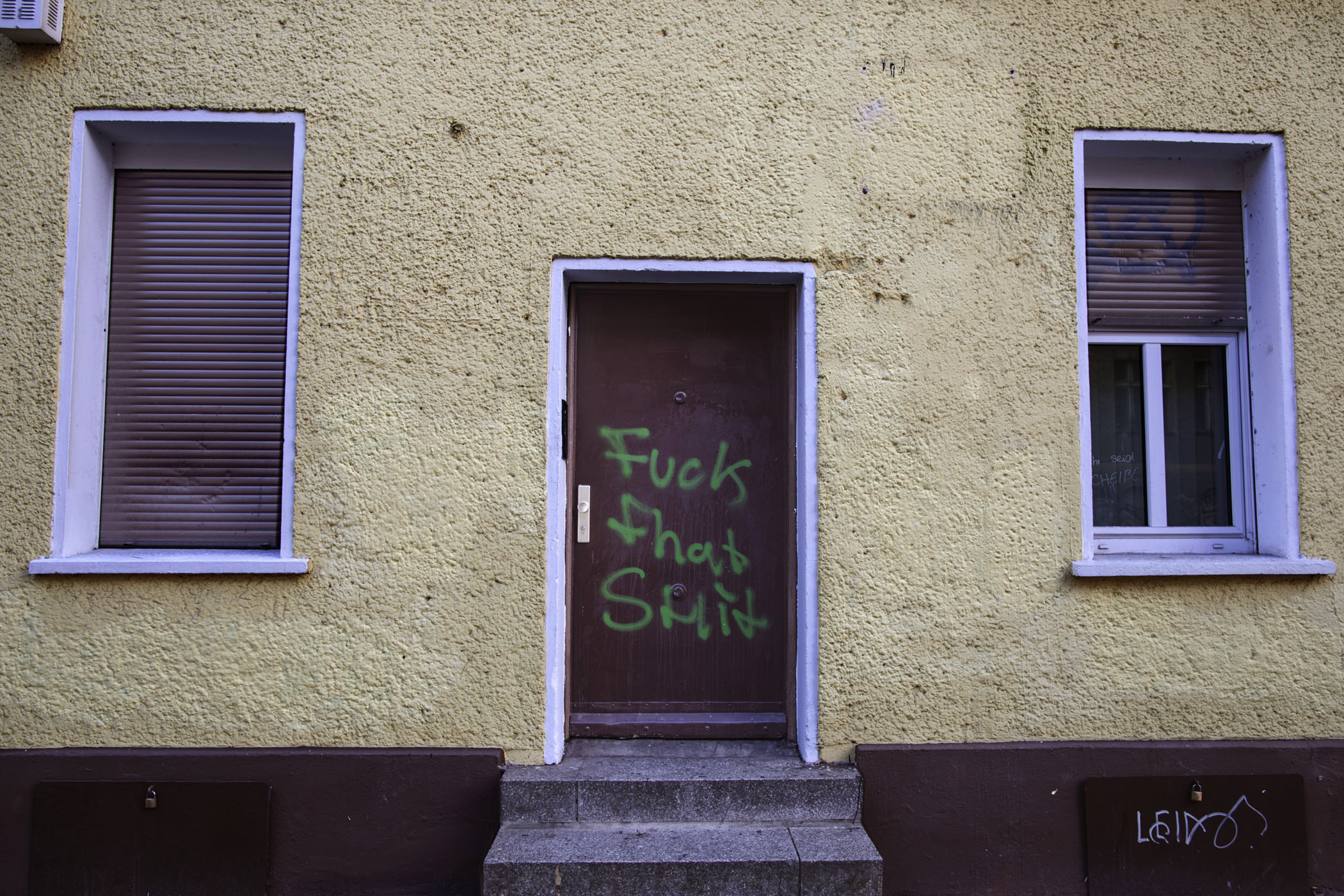
Graffiti on a door of the offices of the National Democratic Party of Germany (NPD) in Berlin, Germany. October 2016.
Long the standard-bearer of an aggressive, xenophobic form of nationalism, France’s National Front, founded in 1972, has recently split into difference factions, with the rump party due to be renamed Rassemblement national (National Rally), hearkening back to the Rassemblement national populaire, a right wing collaborationist outfit during France’s wartime Vichy Regime. Though Marine Le Penn, the daughter of the party’s founder, made it through to the second round of the 2017 presidential election, she was roundly defeated by Emmanuel Macron. Her niece, Marion Maréchal-Le Pen, resigned from her seat as regional councillor of the Provence-Alpes-Côte d’Azur constituency in May 2017 and is currently not standing for re-election.
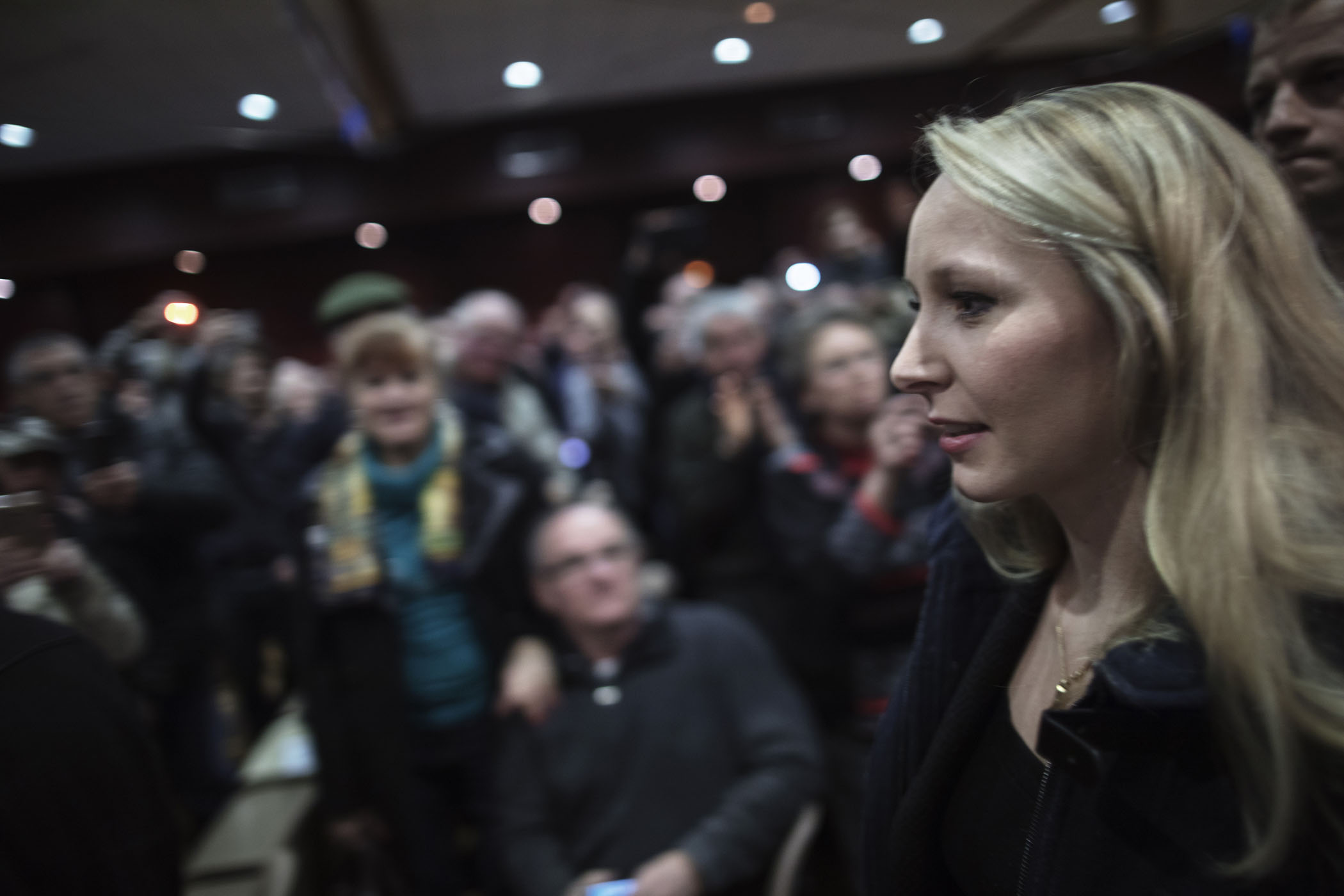
Marion Maréchal-Le Pen at a Front National event opening her aunt Marine Le-Pen’s election campaign, Fougières, France. January 2017.
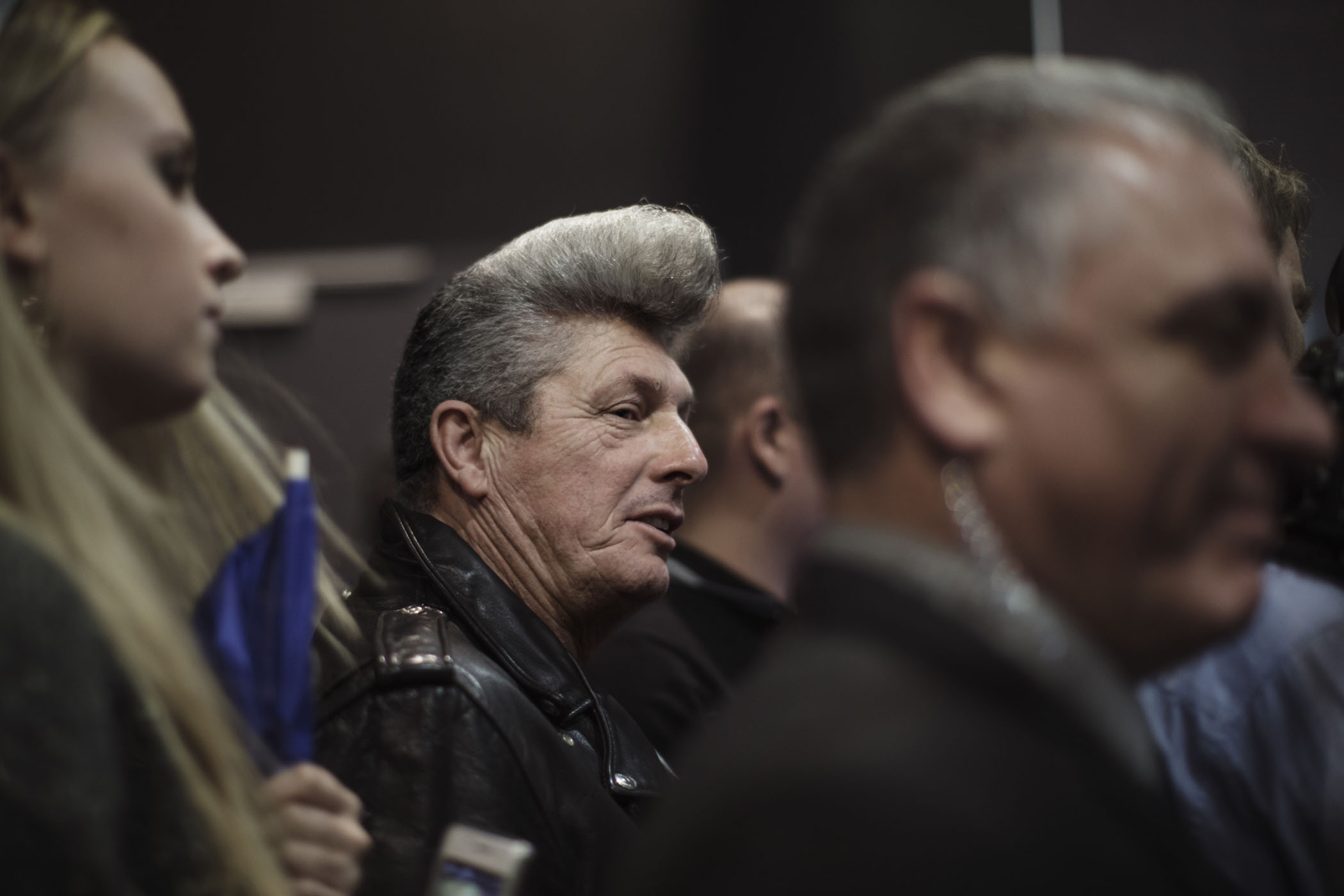
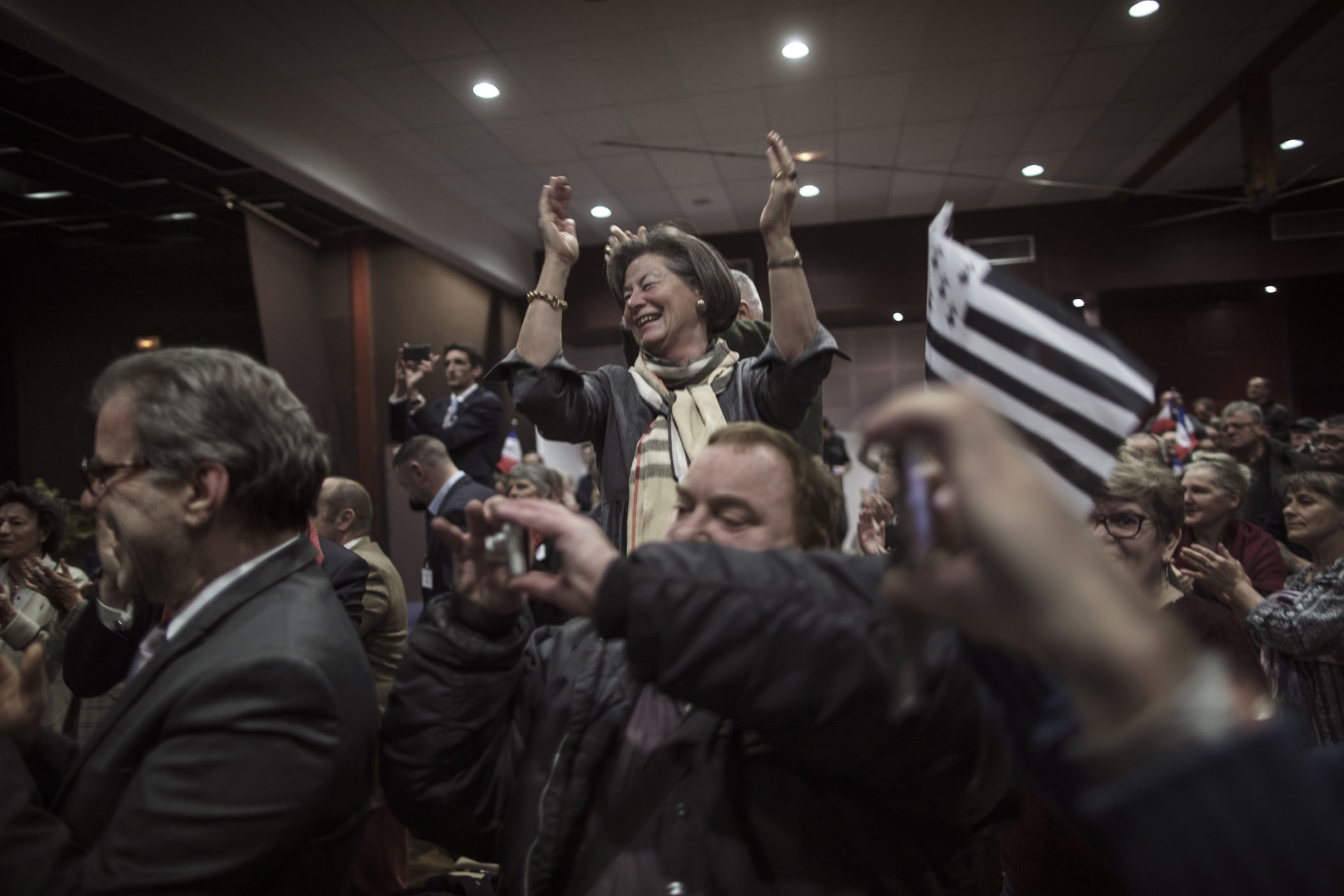
Front National supporters at an event opening Marine Le-Pen’s election campaign, Fougières, France. January 2017.
Britain First, a relatively new party in the mould of 1930s British Fascism which split from the more established British National Party in 2011 and now embraces euroscepticism and islamophobia, has come to public attention through high profile actions such as “Christian Patrols” in East London to counter local “Muslim Patrols” and mosque invasions in heavily Muslim areas of British cities. When Jo Cox, a British Labour MP, was murdered in June 2016, her killer, Thomas Mair, is said to have shouted “Britain First” as he attacked her, later describing her as a ‘traitor’ to white people for her support for immigration and the European Union. This has led to calls for the party to be proscribed as a “terrorist organisation” due to its extremist views and violent rhetoric.
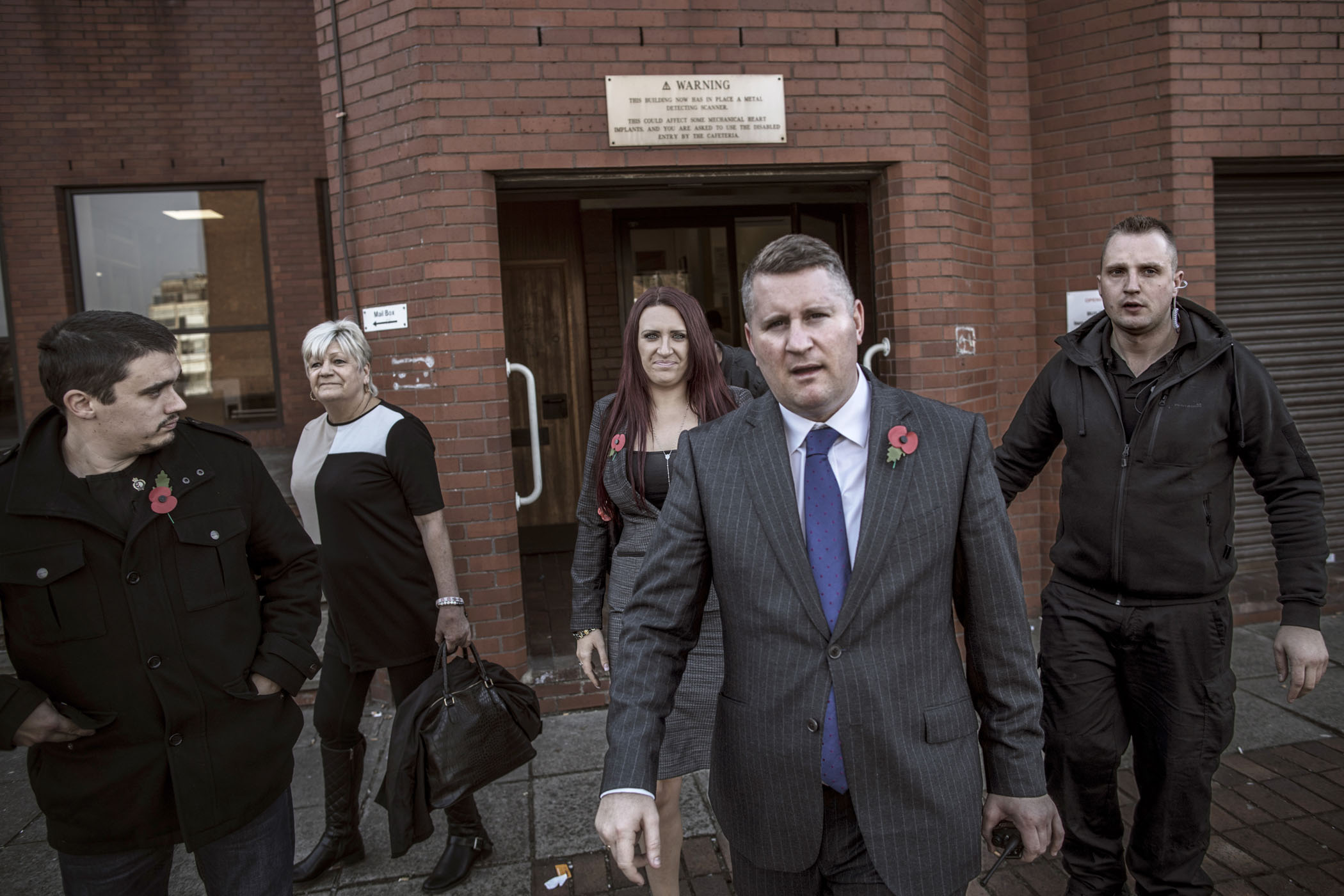
Paul Golding, leader of the fascist Britain First party, leaves Luton Magistrates’ Court, where the Jayda Fransen, currently the party’s deputy leader, was convicted of abusing a Muslim woman wearing a hijab. Luton, United Kingdom. November 2016.
The EU’s largest and most powerful country, Germany, is experiencing a strong backlash against Chancellor Angela Merkel’s ‘Open Door’ policy toward refugees and migrants entering Europe in 2016, up to 1 million of whom have ended up in Germany. At a grassroots level, Pegida (Patriotic Europeans Against the Islamisation of the West) has been organising regular rallies across Germany since 2014. The National Democratic Party of Germany (NPD), a neo-Nazi outfit that has been threatened with proscription a number of times over the past decade, has never managed to reach the 5% hurdle required to enter the national parliament but it is the Alternative für Deutschland (AfD) which has had the greatest impact since scoring a worrying 12.6% of the vote in the 2017 parliamentary elections. Promoting a mix of German nationalism, islamophobia, xenophobia and a call for conscription to be reinstated, the movement has been outflanking traditional right wing parties such as the Christian Socialist Union (CSU) in Bavaria, in turn causing these to advocate tougher immigration controls and an emphasis on Germany’s Christian culture.
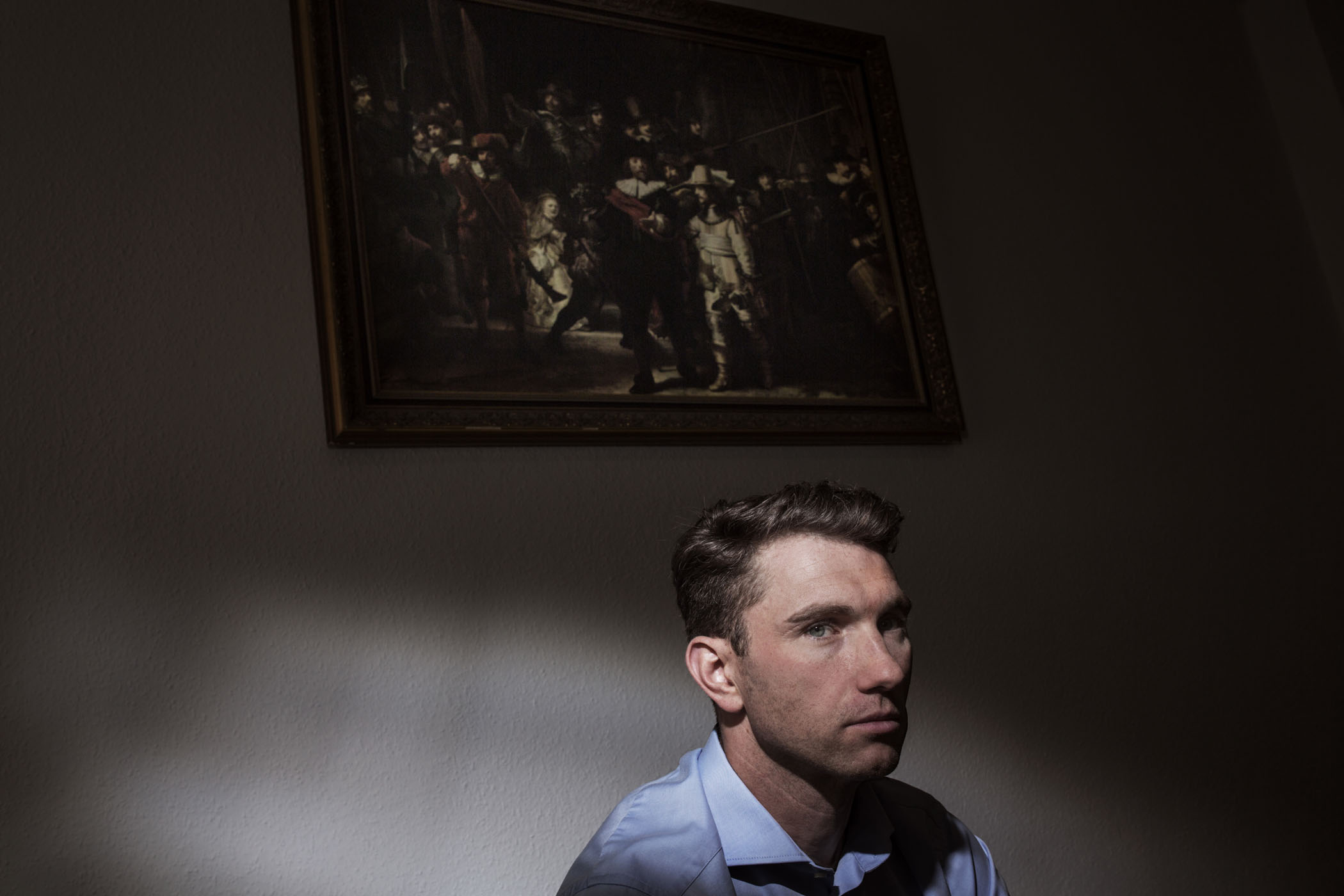
Chairman of the right-wing National Democratic Party of Germany (NPD) Frank Franz, in the party offices in Berlin, Germany. February 2016.
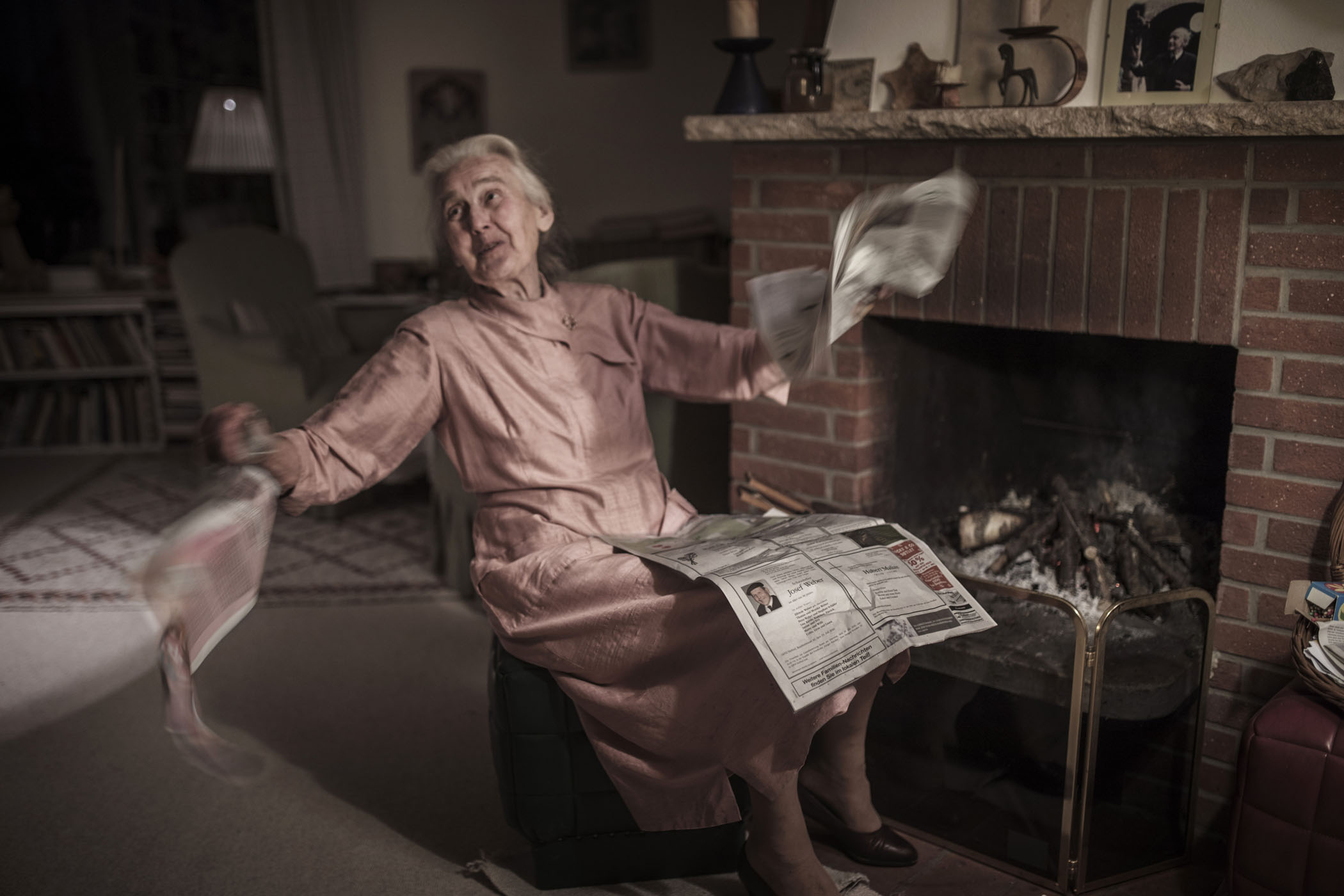
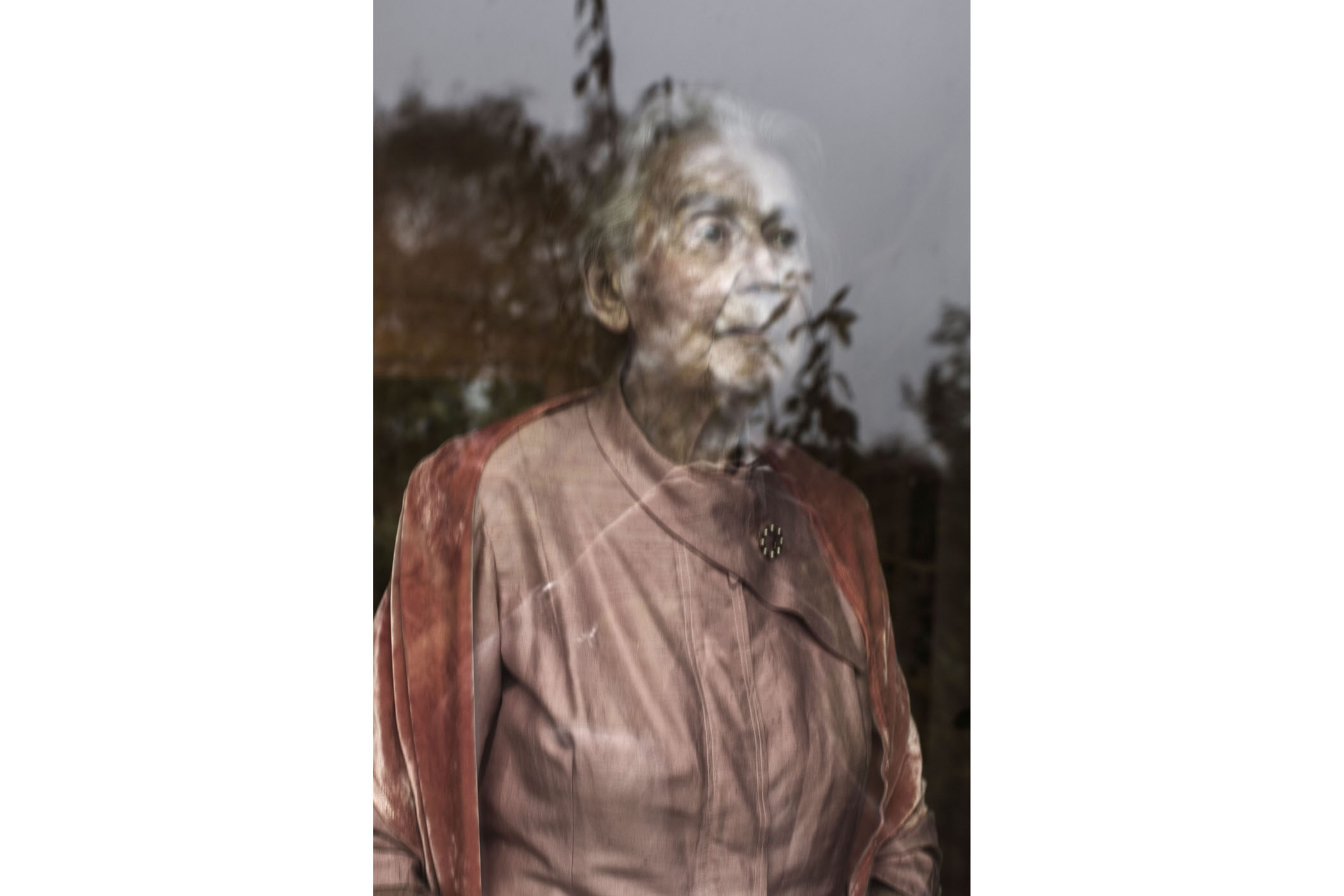
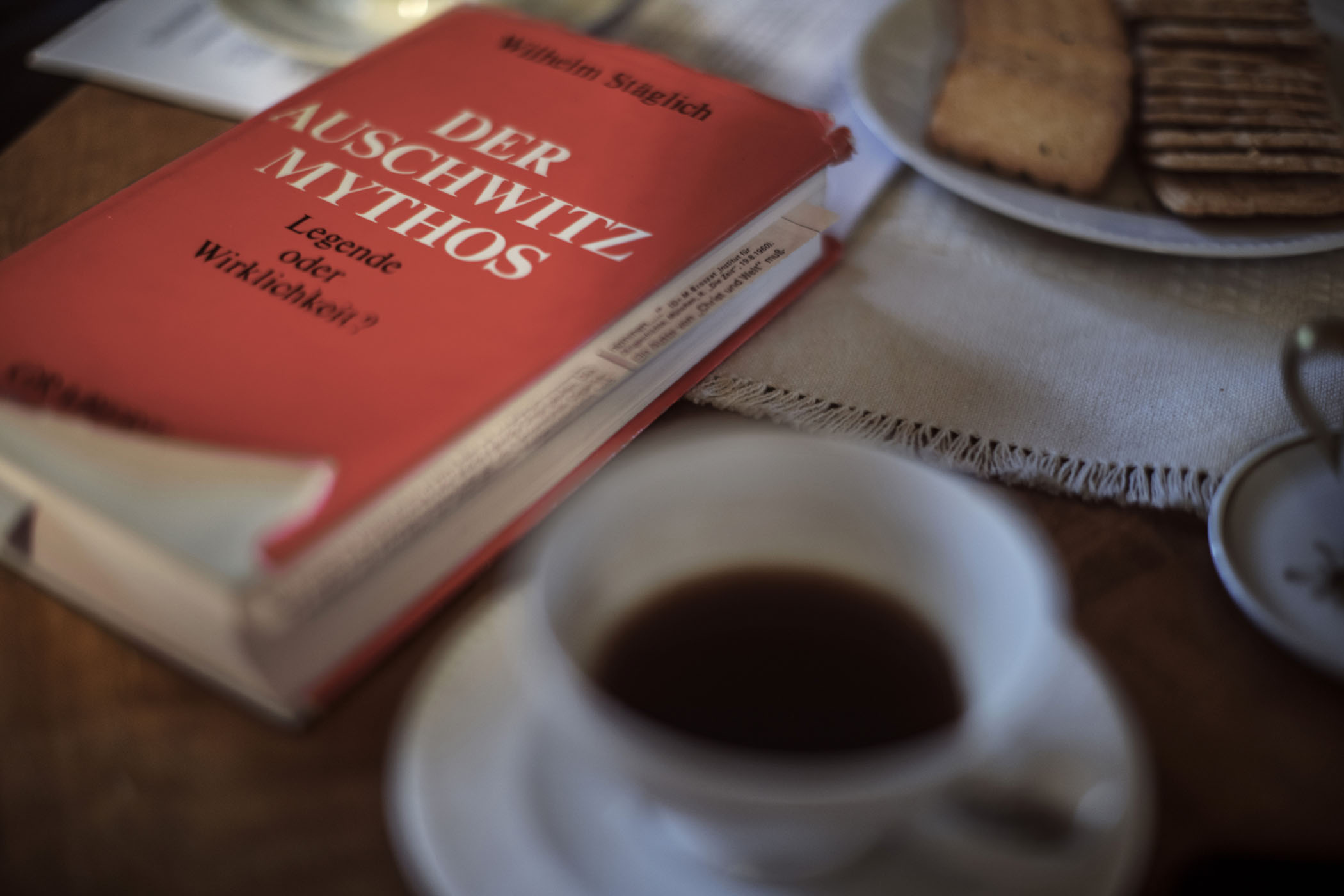
Ursula Haverbeck (88), a Holocaust denier, at her home in Westfalen, Germany. She is a convicted criminal who has been given a prison sentence for her Holocaust denial and fined for sedition among other offences. She keeps a copy of Wilhelm Stäglich’s 1979 book The Auschwitz Myth – Legend or Reality close to hand.
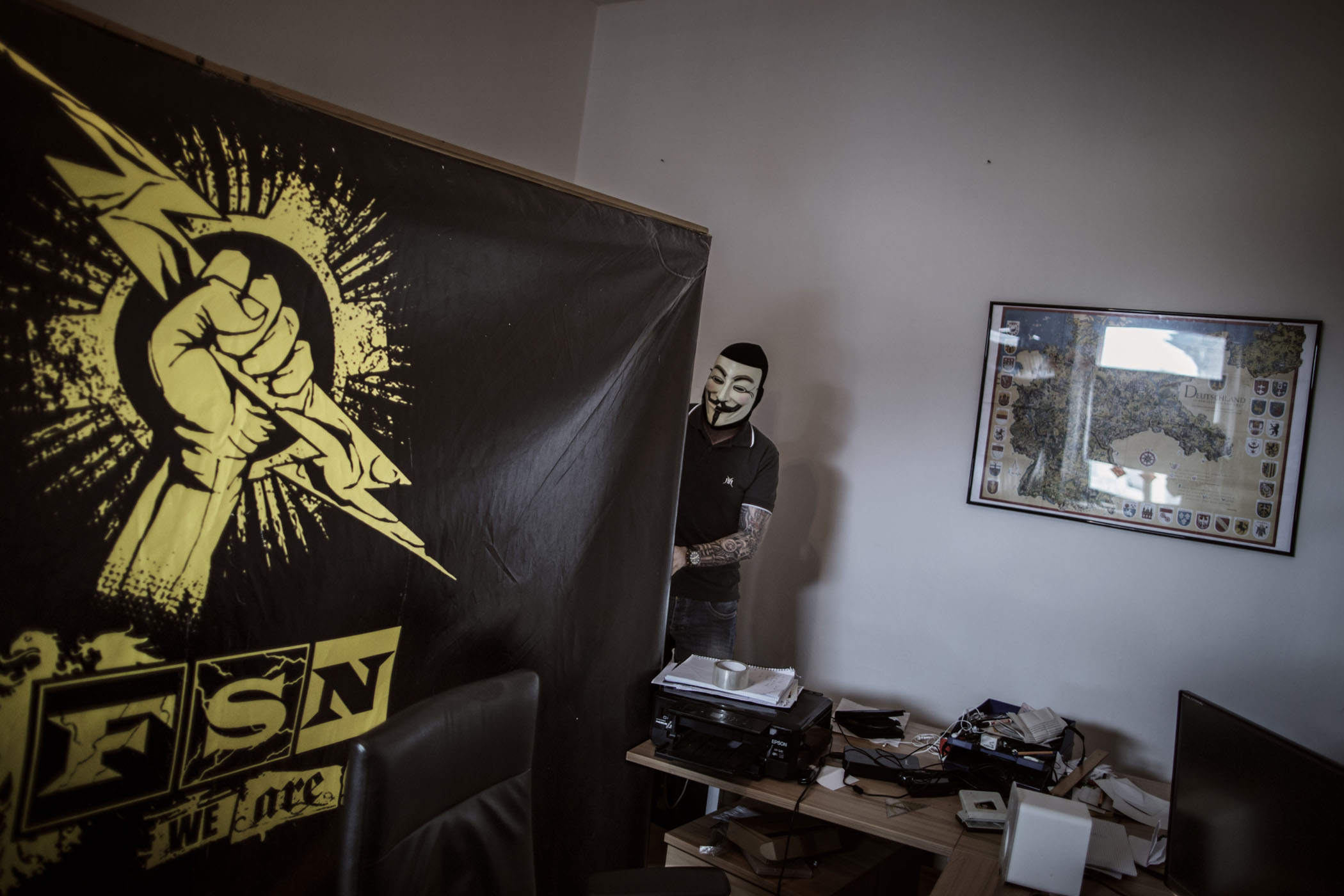
Patrick Schroeder, labelled the ‘Nice Nazi’ by the German media shows off a large printed logo of his internet TV station FSN.tv. He runs various online neo-nazi TV and radio channels where he broadcasts music of generes such as ‘nazi-rock’, ‘NSBM – National Socialist Black Metal’ and ‘hatecore’, among others.

